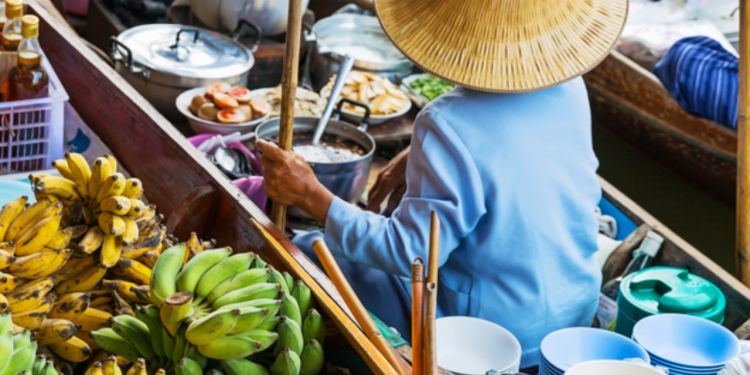
When traveling, every country and city has its own cultural differences. Thailand may be known as the Land of Smiles; it is also a land of surprise because of its fascinating culture. The biggest challenge you will need to face when moving to Bangkok would be the dissimilarity of it to your own customs, language, and way of life. The local culture has many peculiarities, both big and small. Here are just a few things you might need to adjust to.
Language in Bangkok
The Thai language is challenging to learn, especially if you're not experiencing or hearing it firsthand. For example, many words in the Thai language sound similar but have different meanings depending on how they are pronounced using the tone or pitch. It is fun to learn, but it is difficult to grasp. So make sure to know the tone correctly, or you might be saying a different word.
Behavior in Bangkok
Thais are simply modest and conservative in most aspects because of their religion, which preaches modesty and humility.
Family in Bangkok
Thais value their families highly — well, who else doesn't? But unlike Westerners, they also have close ties with their extended families.
Status in Bangkok
Family connections, job type, education, income, and age are factors that affect status in Thai culture. Wai (a traditional Thai greeting consisting of a slight bow) is performed differently depending on a person's status, and there are certain rules on who should wai first.
When addressing each other, Thais also use certain words to indicate the person's age. Older people use pii before the name to show respect and nong for people younger than them. For instance, P Dan or Nong Sue. Sometimes, younger people may also be referred to as p if their status or profession is higher than the other.
Patriotism in Thailand
This is one of the most patriotic nations in the world. It also takes pride in being the only nation in Southeast Asia that has never been colonized by European countries. The national anthem is played twice a day everywhere, and you must pay respect to it by standing still wherever you are or whatever you're doing in most cases. In the city centers, though, people will rarely stop what they're doing when the national anthem plays. In the past, when the King's anthem was played before movies in the cinemas, everyone had to stand up, whether local or foreign; however, this practice is now changing, and you will see that many Thais do not stand up at the cinema.
Sabai-sabai (relax)
Most Thais are perceived as laidback and kind. They don't often show their feelings publicly. Only in rare situations do you see arguments or fights. In most situations in the streets (like motorcycles bumping into each other), Thais will do their best to avoid conflict. In fact, they will probably simply bow to each other and say mai pen rai (which means no worries or no problem) and leave.
Monks in Thailand
Most monks are well-respected in Thailand, both inside and outside the temples. They are prioritized in buses, trains, and everywhere, as there are designated seats for monks on public transport. Whenever they are in public transport, people who are in designated seats must give up. Also, females shouldn't sit next to a monk or their belongings, and they are also not allowed to put their offerings directly into the monks' hands; instead, they should be placed inside their alms bowls.
The body in Thailand
Body parts have great significance in Thai culture, making the head the most spiritual part of the body, which shouldn't be touched by any stranger, and the feet the dirtiest and lowest, which shouldn't be used in touching anyone or pointing to anything as it shows impoliteness. Even when riding in a taxi, you should never put your feet on the middle console of the car, even if you are crammed with three people in the back. If you're planning to visit temples, all of them require you to take off your shoes. Thais are tolerant, especially when you're new to Thailand, but be aware of and learn about the culture, especially if you want to take part in it.
We do our best to provide accurate and up to date information. However, if you have noticed any inaccuracies in this article, please let us know in the comments section below.








